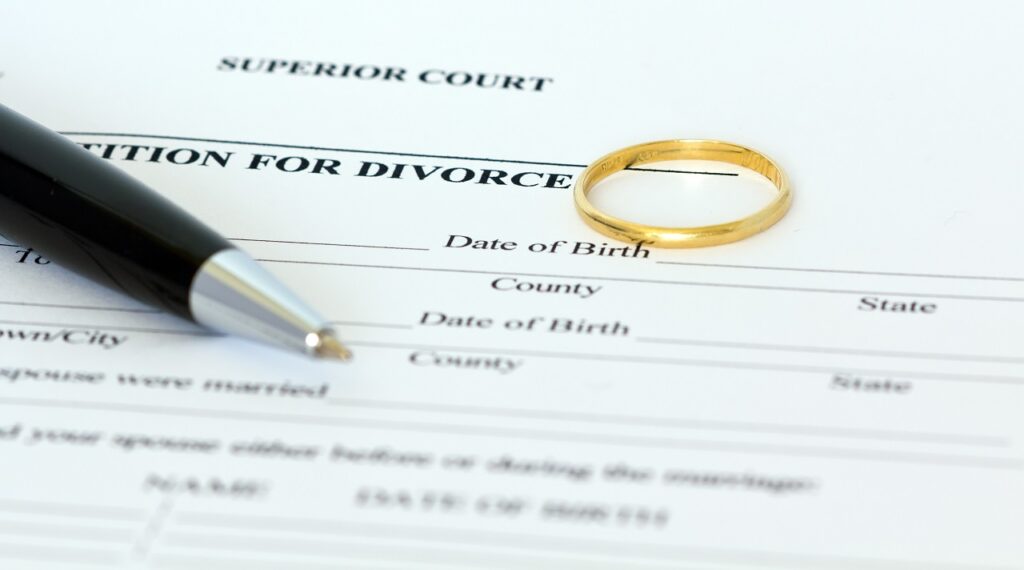What to Expect After Hiring a Divorce Attorney?

A divorce attorney is a legal professional who specializes in handling divorce cases. They can help with the legal process of ending a marriage, including filing for divorce, negotiating settlements, and representing clients in court. They can also assist with related issues such as child custody, property division, and alimony. Finding an attorney with experience in handling divorce cases and who you feel comfortable working with is crucial.
Here are the responsibilities and qualities of a divorce attorney.
Qualities of a Good Divorce Attorney

A good divorce attorney should possess certain qualities that will help them effectively represent their clients and achieve a positive outcome for their case. Some of these qualities include:
- Experience: A good divorce attorney should have experience handling divorce cases and be familiar with the laws and regulations in their state related to divorce and family law.
- Knowledge: A good divorce attorney should have a thorough understanding of the legal process of divorce and be able to provide their clients with accurate and up-to-date information on their rights and options under the law.
- Communication skills: A good divorce attorney should communicate effectively with their clients, the other party, and the court. They should be able to explain complex legal concepts in a way that is easy for their clients to understand.
- Negotiation skills: A good divorce attorney should be able to negotiate effectively with the other party in order to agree on issues such as property division, child custody and support, and alimony.
- Advocacy: A good divorce attorney should strongly advocate for their clients and be willing to fight for their client’s rights in court if necessary.
- Empathy: A good divorce attorney should be able to understand and empathize with their client’s emotional needs during a difficult time.
- Good reputation: A good divorce attorney should have a good reputation in the legal community and among clients.
- Responsiveness: A good divorce attorney should be responsive to their client’s questions and concerns and should keep them informed about the progress of their case.
- Professionalism: Good divorce attorneys should conduct themselves in a professional manner at all times and should always act in the best interest of their clients.
What is the Role of a Divorce Attorney?
Filing for divorce

A divorce attorney can assist with the process of filing for divorce. They can help the client understand the requirements for filing for divorce in their state and ensure that all necessary paperwork is completed correctly and filed promptly. This can include filing the divorce petition, which is the document that initiates the divorce process and outlines the grounds for divorce. Depending on the jurisdiction, they may also file other forms, such as summons and financial forms. They can also help the client navigate the court system and ensure that their case is handled properly.
Facilitate the one-day divorce process
A one-day divorce, also known as an uncontested divorce, is a process where both parties have agreed on the terms of the divorce and do not wish to contest any aspect of it. In such cases, the divorce can be completed relatively quickly, sometimes even within a day. A Leskin Law And Mediation attorney can assist with the one-day divorce process by helping to prepare and file the necessary paperwork, such as the divorce petition or complaint, and any other documents the court may require.
Negotiation settlements

A divorce attorney can assist with negotiating settlements. They can help the client understand the laws surrounding property division, child custody, and alimony in their state and work with them to agree that it is fair and in their best interest. The attorney can also communicate with the other party’s attorney to negotiate a settlement on behalf of the client. Depending on the jurisdiction, mediation or arbitration may be required before going to court. Divorce attorneys can assist clients in this process.
The attorney will also review any agreements reached to ensure they are legally binding and enforceable. They can also advise the client on the pros and cons of different settlement options and help them to make informed decisions. Actually, not all divorce cases go to trial, many are settled before going to court, and a divorce attorney can help in this process.
Representing clients in court
A divorce attorney will represent the client in court if the case goes to trial. This means that the attorney will argue on the client’s behalf, present evidence, and cross-examine witnesses. The attorney will also advise the client on the legal proceedings, help prepare the client for court and answer any questions the client may have. It is important to note that most divorce cases are settled out of court through negotiation, mediation or collaborative law process. However, if the parties cannot reach an agreement, the case may go to trial, and the attorney will represent the client before a judge to argue for the client’s desired outcome.
Assisting clients with related issues

A divorce attorney may also assist clients with related issues, such as drafting prenuptial or postnuptial agreements. Prenuptial agreements are contracts made before marriage and usually deal with issues such as property division and spousal support in the event of a divorce. Postnuptial agreements are similar to prenuptial agreements but are entered after marriage. The attorney will help the client understand the agreement’s legal implications and draft it to ensure it is legally binding and enforceable.
They may also help clients modify or enforce a previous court order. This can include modifying a child custody or support order or enforcing an order for spousal support or property division. They will help the client understand the legal requirements and procedures for modifying or enforcing a court order and represent the client in court as necessary.
Providing legal advice
One of divorce attorneys’ main roles is to advise their clients on their rights and options under the law. This includes explaining the legal process of divorce, the laws and regulations related to property division, child custody and support, alimony, and other issues.
The attorney will also advise the client on the potential outcomes of their case and the best course of action to take based on their specific situation and the laws in their state. They will also help the client understand the legal implications of any settlements or agreements they may reach with their spouse and will ensure that their client’s rights are protected throughout the divorce process.
Finally, note that the attorney-client relationship is based on trust and confidence, so the attorney should explain the legal process and advice so the client can understand and make informed decisions.




